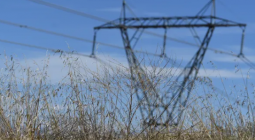World’s richest use up their fair share of 2025 carbon budget in 10 days
Emissions caused by wealthiest 1% so far this year would take someone from poorest 50% three years to create
The world’s richest 1% have already used up their fair share of the global carbon budget for 2025, just 10 days into the year.
In less than a week and a half, the consumption habits of an individual from this monied elite had already caused, on average, 2.1 tonnes of carbon dioxide emissions, according to analysis by Oxfam GB. It would take someone from the poorest 50% of humanity three years to create the same amount of pollution.
Carbon dioxide (CO2) is created whenever carbon-based fuels such as coal, gas and oil – used for most electricity generation, industrial processes, heating and transport – are burned.
When it accumulates in the atmosphere it has an insulating effect, preventing heat reaching the Earth from the sun from being radiated back into space. The result of the increasing concentration of atmospheric CO2 has been a breakdown of climatic conditions that have been stable for 10,000 years.
Governments have pledged to limit global heating to 1.5C (2.7F) above preindustrial levels, but the world is far from hitting the targets needed to keep to this level.
On Friday, figures from the EU’s Copernicus climate change service showed that 2024 was the first year to exceed the 1.5C figure.
Rising temperatures have led to an emerging crisis of extreme weather events, from droughts to hurricanes to heatwaves, leading to increased food insecurity, wildlife habitat loss, disappearing glaciers, rising sea levels, and a host of other effects.
According to the analysis, the richest 1% – about 77 million people, including all those earning more than $140,000 (£114,000) a year – are responsible for more than twice as much carbon pollution each year as the poorest half of humanity.
But it is the poorest people who are suffering the most serious effects of climate breakdown, which are worse in tropical regions. They also have the fewest resources to mitigate the disastrous results of sudden climatic change, while the wealthiest 1% live climate-insulated, air-conditioned lives, mostly in the global north.
A joint investigation by Oxfam and the Stockholm Environment Institute in 2023 found that emissions from the 1% alone would be enough to cause the heat-related deaths of 1.3 million people over the coming decades.
Chiara Liguori, Oxfam GB’s senior climate justice policy adviser, said: “The future of our planet is hanging by a thread, yet the super-rich are being allowed to continue to squander humanity’s chances with their lavish lifestyles and polluting investments.
“Governments need to stop pandering to the richest polluters and instead make them pay their fair share for the havoc they’re wreaking on our planet. Leaders who fail to act are culpable in a crisis that threatens the lives of billions.”
The very richest live lives that are truly profligate in their use of the world’s remaining carbon budget. Previous research on climate inequality by Oxfam found that the two private jets owned by Jeff Bezos, the Amazon founder, spent nearly 25 days in the air over a 12-month period, releasing as much carbon as an Amazon employee in the US would in 207 years.
The three yachts of the Walton family, heirs of the Walmart retail chain, had a combined carbon footprint in one year of 18,000 tonnes – an amount similar to that of 1,714 Walmart shelf-stackers.
To calculate an individual’s fair share of the planet’s remaining carbon budget, Oxfam took an estimate from the UN’s emissions gap report on the level of emissions in 2030 consistent with a 50% chance of limiting global heating to 1.5C, and divided it by 8.5bn, which is the forecast population of the planet by that year.
In order to align with the pathway to 1.5C, the richest 1% would have to reduce their 2015 level of emissions by 97% by 2030. But according to Oxfam’s analysis, they are likely to reduce emissions by only 5%.
In the UK, Oxfam is calling on Rachel Reeves, the chancellor, to increase taxes on climate-polluting examples of extreme wealth, such as private jets and superyachts.
Liguori said: “As global temperatures continue to climb, the UK must show how it will generate its own share of new, fair funding to meet the escalating climate finance needs and fight inequality. Significantly higher taxes on polluting luxuries like private jets and superyachts is an obvious place for the government to start.”
Cover photo: There are calls for increased taxes on climate-polluting examples of extreme wealth such as private jets. Photograph: dogayusufdokdok/Getty Images




